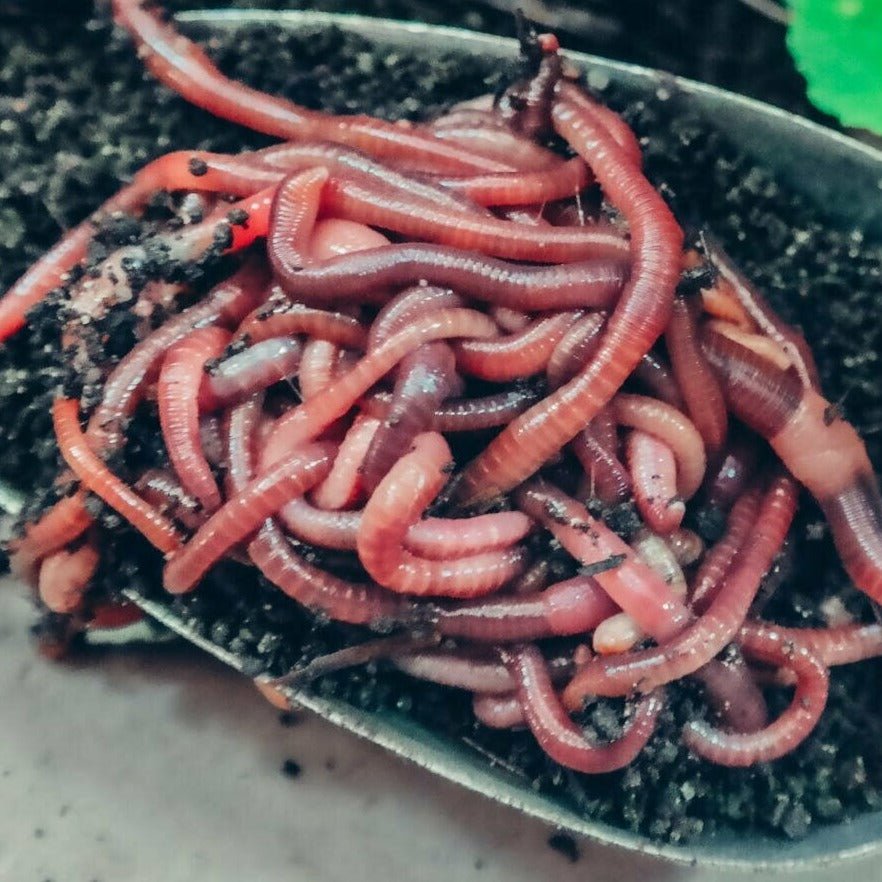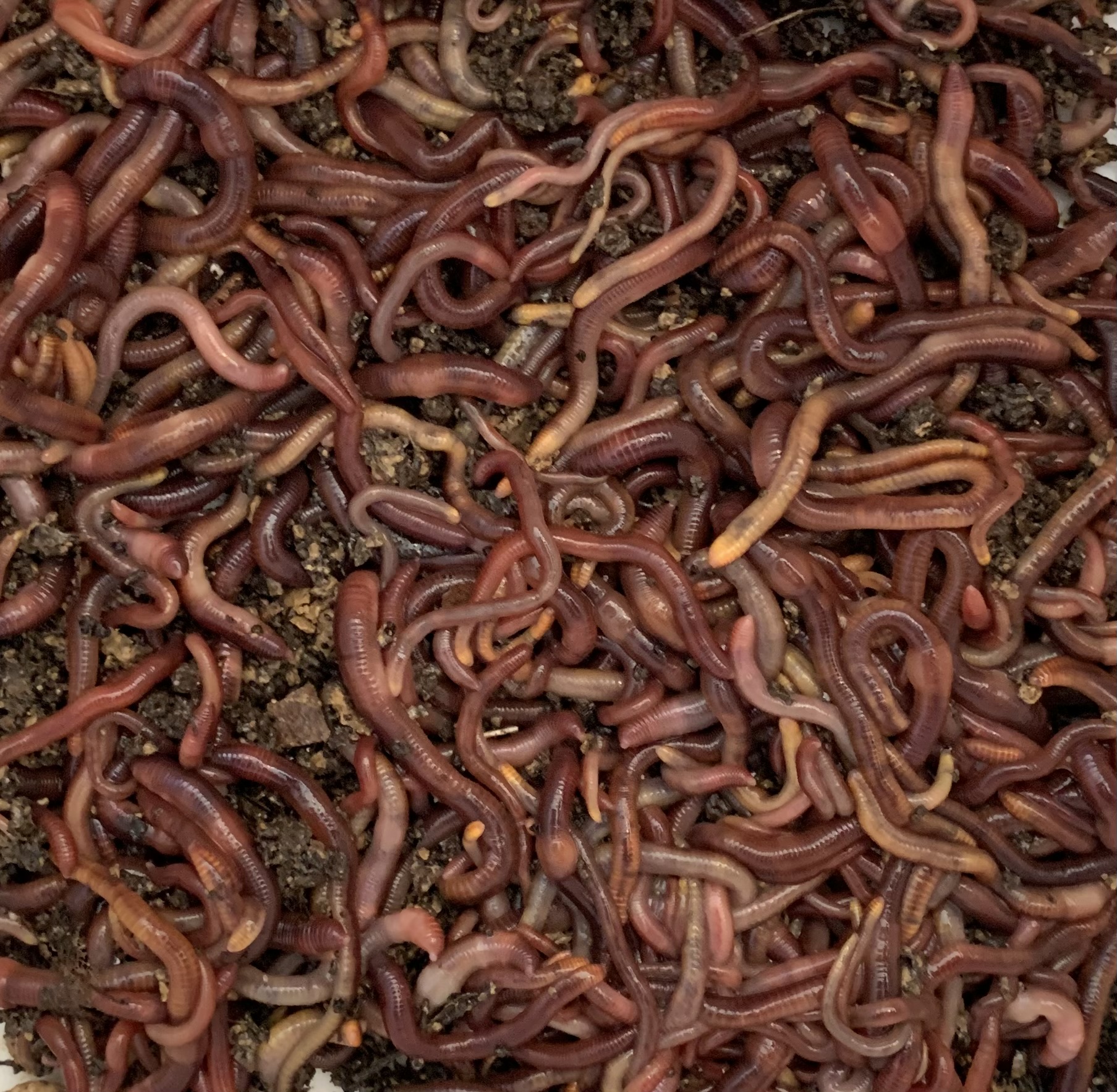Red Wiggler Express - The Facts
Red Wiggler Express - The Facts
Blog Article
All About Red Wiggler Express
Table of ContentsThe Ultimate Guide To Red Wiggler ExpressWhat Does Red Wiggler Express Mean?The 9-Minute Rule for Red Wiggler ExpressRed Wiggler Express Things To Know Before You Get ThisFacts About Red Wiggler Express RevealedThe Facts About Red Wiggler Express Revealed
Like all worms red worms take a breath oxygen through their skin. A wet environment likewise facilitates the malfunction of natural matter in their bed linens material by microbial life forms.
During mating worms slide along each other up until their clitellum are straightened. They hold on per other with bristle like hairs, called setae, located on their underside. While accepted they trade reproductive influential fluids which is saved for later use. Throughout the mating session, which lasts for concerning 3 hours, the worms secrete mucous rings around themselves.
Little Known Facts About Red Wiggler Express.
Prior to dropping off all the required reproductive materials are scooped up right into the ring. When the mucus ring hands over the worm completion seals up, triggering it to taper at one end, triggering the familiar lemon form of the cocoon (Red Wigglers For Bait). Over the following 20 days the cocoon dims and sets
Some worm farmers actually withhold food and water to simulate dry spell conditions and bump up cocoon manufacturing. We do not advise this for the home composter as it has the prospective to kill off way too many of your finest worms. Since you recognize all concerning the red worm it's time to go out and discover a good vendor and get a pound or more and start your very own worm farm.

The Greatest Guide To Red Wiggler Express
The digestion system is simple, starting at the mouth where the worm begins to eat its food before passing it on to the throat. The vocal cords is a muscle section which acts like a pump to draw food right into the mouth prior to pumping it out right into the esophagus. The esophagus is slim and thin-walled and works as the "waiting area" for the gizzard.
Keep in mind: This need for grinding is why grit is advised in a worm bin. The worm includes no indigenous grinding ability so the worm relies upon ingested grit to aid grind its food in the gizzard. The tummy is where the first chemical failure of food occurs with the aid of a protein-busting enzyme.
The intestinal tract develops the longest part of the worm and is where most of digestion occurs through enymatic procedures. The spreadings ultimately go through the anus at the end of the worm as capsules covered with a biologically-rich mucous. (You're not eating I wish.) Red wigglers will certainly intertwine around each other, exchanging sperm via their skin.
Red Wiggler Express - The Facts
Within 42 days, these infant worms will reach sex-related maturation as shown by the emergence of the clitellum. A mature red wiggler can be expected to live between one to 3 years. The mighty red wiggler might occasionally be made use of as a bait worm for smaller fish or as a healthy protein resource for chickens and reptiles.

And as discussed over, they are one of the most typical composting worm in the world. Why? Well there's most likely not just one factor. Rather, a combination of price, strength, and comfort in a large range of temperatures makes it one of the most proper composting worm for many new vermicomposters. Red wigglers and their cocoons can survive in a variety of problems.
This is a common method amongst worm shippers that don't wish to risk having the worms being in a warm or cool storage facility over the weekend break. Worm cultivators are not storing worms in a scenario where they prepare to deliver. The worms need to be gathered from their environment first, so farmers will certainly usually establish a Friday or Saturday deadline in order to harvest in time for a Monday delivery.
A Biased View of Red Wiggler Express
To reduce delivery expense, you may intend to see if there are any close-by "Mommy and Pop" shops via a Google search. If you don't find what you're trying to find, after that I welcome you to take a look at worms via the Urban Worm Firm! The quantity of red wigglers you buy should be entirely dependent upon the area you have offered for vermicomposting.
I call these the "Big 3" aspects of worm container maintenance. As mentioned previously, red wigglers have a wide temperature level resistance.
The majority of worm container proprietors run their worm bins way also damp. And a properly-maintained worm container need to not be generating leachate. Because a lot water is bound us within the cells of vegetables and fruit, it doesn't appear like your feedings are adding that much water. But they are. To be traditional, I would certainly add bed linens every feeding.
For ideal results, you want to fire for regarding 60-70% moisture level. At the best moisture levels which is just under 70% that handful should barely produce one drop of fluid.
The Ultimate Guide To Red Wiggler Express
The European Nightcrawler, the larger cousin of the red wiggler, is equally as ravenous and additionally creates an excellent lure worm - Red Wigglers For Bait. It favors a bit of a cooler environment than the red wiggler. The African Nightcrawler is a huge composting worm and makes a gorgeous, granular cast
(https://sandbox.zenodo.org/communities/rwigglerexnc/records?q=&l=list&p=1&s=10&sort=newest)The Indian Blue is ravenous, but also prefers a warmer environment and it additionally shows a propensity to run away the container. The red wiggler is a sturdy worm and isn't as particular regarding its climate. I like to call it the Ford Taurus of vermicomposting worms; you won't brag to your hardcore composting buddies that you own them, but they will certainly offer you well.
Surefire active 1/2 pound of hand arranged Red Wigglers/Compost with worms (+500 worms) in different phases of life from cocoons to develop worms in their natural environment/bedding. Hand sorted worms lowered the disturbance of the worms thus insuring real-time distribution. Red wiggler worms do not like vibrations or light.
Report this page